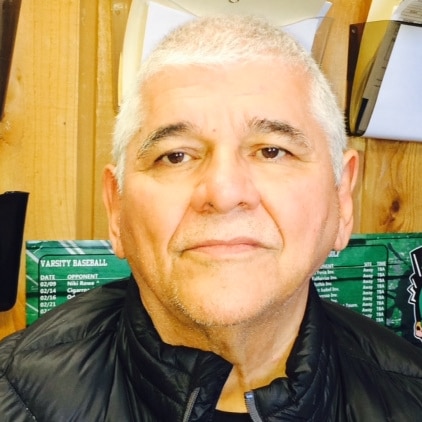South Texas Human Rights Center
Purpose Prize Fellow 2015
A former union organizer preserves immigrant rights, in life and in death, in South Texas border farms and ranches.
The humanitarian crisis that exists in my region is a “mass disaster.” I choose, however, to avoid the political rhetoric and appeal instead to essential human rights. In 2013, I founded the South Texas Human Rights Center, where I organize community initiatives to prevent the deaths of migrants in Texas’ brush country and ranchlands. I have gained permission to place water stations on country back roads and on private ranches by confronting the private, powerful and elite land-owners on humanitarian grounds. I ask, “Have you had migrants perish on your land?” So far, we have over 40 stations in place. Our water saves many lives. Even still, people die trying to reach the United States. Texas state law requires that all unidentified human remains (UHRs) are evaluated by medical examiners, but I learned that this was not the case for those who cross the border. I founded the STHRC to address this gap and to change the immigration policies that cause death. My prior work had often included community and labor organizing; I know how to reach people one-on-one and how to lead small groups in education and organization. Consistency, persistence and transparency create trust.
- STHRC is the only human-rights effort in Texas that works to prevent migrant deaths through advocacy, organizing and public-education that targets the root causes of regional migration.
- Placed over 100 water stations at the South Texas/Mexico border with plans to open 200 more by 2020.
- Systematizing forensic data collection of unidentified human remains and mapping unknown graves in 18 Texas border counties.
When I took leave from my union work to care for my mother through her final illness, it gave me an unexpected opportunity to explore new projects. I chose to found the STHRC. As an experienced organizer, I was able to use my skills of diplomacy, negotiation and pushing people to take action to confront important challenges. This work is my coup de grace against injustice in the land of my roots, South Texas. My work to recover migrants’ bodies is very painful. Family members have little knowledge to share; I request searches by local officials and have established a framework to reconcile all forensic data of exhumed remains, missing-migrants reports, unknown graves and death certificates – all to assist families who turn to STHRC for help. Our reach extends to 18 South Texas counties in the border and brush-country, coastal bend area. Our best practices for processing and identifying UHRs have been developed with prominent partners, including the Brooks County Sherriff’s office, Texas State University, the Texas Guard, The Border Patrol and others, including Guatemalan, Salvadoran, Honduran and Mexican civic society stakeholders. I feel the anguish and desperation of family members whose loved ones are missing or lost. Law enforcement can be callous or uncaring, with few answers. Guides and coyotes (smugglers) are evasive and deceptive; consulate personnel are distant and lack follow-through. Families come to us; we listen, interview, and begin the search. We are the beacon, la fogata, for family members who are themselves undocumented and powerless. The STHRC is their only hope and voice. I look in the quagmire of relentless enforcement and detention; I search in the brush. I cannot forget that the people who suffer are those who strive for a better life.




